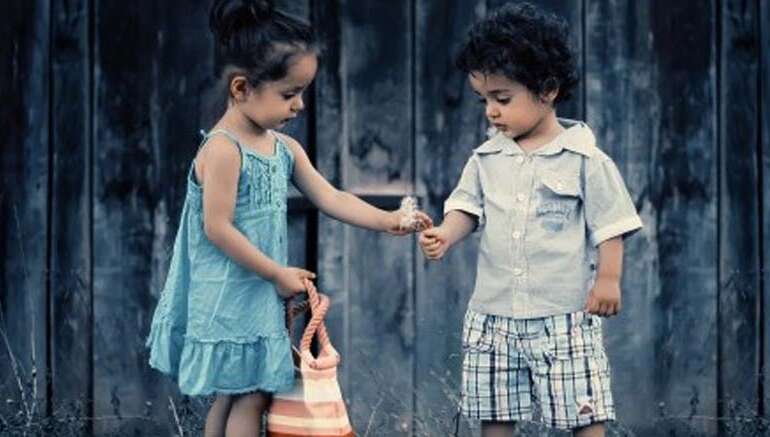Teaching Gratitude as a Life Skill: Why and How Parents Should Nurture It.
Gratitude is more than just saying “thank you”—it’s a powerful life skill that can transform how children see the world. When we teach our children to be grateful, we’re not only encouraging good manners but also helping them develop a positive outlook on life. But how can we, as parents, foster this important quality in our little ones?
What Is Gratitude?
Gratitude is the ability to recognize and appreciate the good things in life, both big and small. It’s about being thankful for the kindness of others, for opportunities we have, and for the simple joys we often take for granted. For young children, understanding gratitude involves learning to recognize when someone does something nice for them and appreciating the things they have, rather than focusing on what they lack.
Why Should Parents Develop Gratitude in Their Children?
- Builds Emotional Resilience
- Encourages Empathy and Kindness
- Fosters a Positive Outlook
- Supports Social and Cognitive Development
- Creates a Sense of Fulfillment
Children who practice gratitude are more likely to develop emotional resilience. They are better equipped to handle disappointments and challenges because they have a mindset that focuses on the positives. This helps them bounce back from difficulties with a more optimistic attitude.
Grateful children tend to be more empathetic and compassionate. They become more aware of the efforts others make for them and are more likely to reciprocate with kindness. This helps them form strong, healthy relationships with friends, family, and peers.
Gratitude helps children focus on the good things in their lives. This positive mindset can reduce feelings of envy, frustration, or entitlement, and encourages them to be content and happy with what they have. Over time, it can lead to greater emotional well-being and overall life satisfaction.
Studies show that practicing gratitude enhances social skills, including cooperation, sharing, and a sense of responsibility. It also promotes cognitive skills like better problem-solving and critical thinking, as children learn to evaluate and appreciate the actions of others and their own circumstances.
Grateful children are more likely to feel a deeper sense of fulfillment and happiness. This is because gratitude shifts their focus from what they want to what they already have, helping them recognize abundance in their everyday lives.
Ways to Develop Gratitude in Children
- Model Gratitude in Daily Life
- Create Gratitude Rituals
- Encourage Thank-You Notes
- Focus on Experiences, Not Things
- Teach the Joy of Giving
- Help Them Understand Effort
- Practice Patience and Reflection
- Read Books About Gratitude
Children learn by observing the adults around them. When parents consistently express gratitude—whether it’s thanking someone for a kind gesture or expressing appreciation for a beautiful day—children are likely to mimic that behavior. Let your child hear you say, “I’m so grateful for this delicious meal,” or “I’m thankful for the time we get to spend together.” This helps them understand that gratitude can be expressed in everyday moments.
Incorporate gratitude into your daily routine with simple rituals. At the end of each day, you can share one thing you’re thankful for as a family. It could be during dinner or before bedtime, where everyone takes turns expressing something they appreciated about their day. These small habits help children actively look for positive experiences.
Teaching your child to write or draw thank-you notes after receiving gifts or acts of kindness is a great way to foster gratitude. Even if your child isn’t writing yet, they can dictate their thoughts, and you can write them down. The act of reflecting on why they are thankful helps solidify the concept of gratitude.
Help your child understand that gratitude isn’t just about receiving material gifts. Encourage them to appreciate experiences like spending time with family, playing with friends, or enjoying nature. You might say, “Wasn’t it fun to have a picnic today?” or “I’m so happy we got to visit the park together.” This helps shift their focus from wanting more stuff to appreciating meaningful moments.
Gratitude and generosity go hand in hand. Involve your child in acts of giving, such as donating toys they no longer use or making a card for someone who might need cheering up. When children experience the joy of making others happy, they develop a deeper appreciation for the kindnesses they receive. You can explain that giving is a way to show gratitude for all the good things we have.
Sometimes, children need help recognizing the effort behind a kind action. Explain to your child how people contribute to their well-being. For instance, you can say, “Grandma worked hard to make this delicious meal for us,” or “Your teacher helped you learn to read because she cares about your education.” This helps children connect the dots between effort and appreciation.
Gratitude can be strengthened by teaching children patience and reflection. Encourage your child to pause and think before reacting to a situation. For example, if they’re frustrated because they didn’t get something they wanted, you can guide them to reflect on what they already have and express thanks for that instead. This reframing teaches them to be mindful of their blessings.
Children’s books that emphasize gratitude can make the concept more relatable. Stories where characters learn to be thankful for their friends, family, or life’s little blessings can serve as powerful tools to reinforce these lessons. After reading, you can discuss the story together and ask your child what they felt grateful for today.
Conclusion
Gratitude is a life skill that can be cultivated from an early age, and it brings lasting benefits. By teaching your child to appreciate the good things in life, you help them develop emotional resilience, empathy, and a positive outlook. As parents, modeling gratitude in your own life and incorporating simple, consistent practices into your child’s routine can make a significant difference. With your guidance, your child can grow up with a mindset of appreciation, leading to a more fulfilling and joyful life.
Riitu Sharma,
Co – Founder
Li’l Miracles International Preschool




